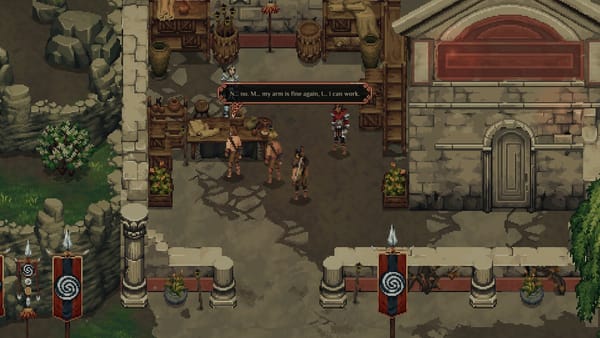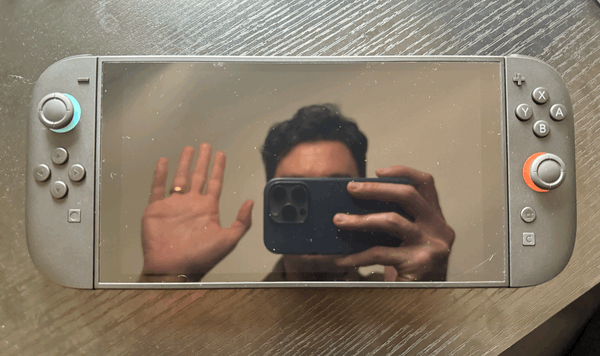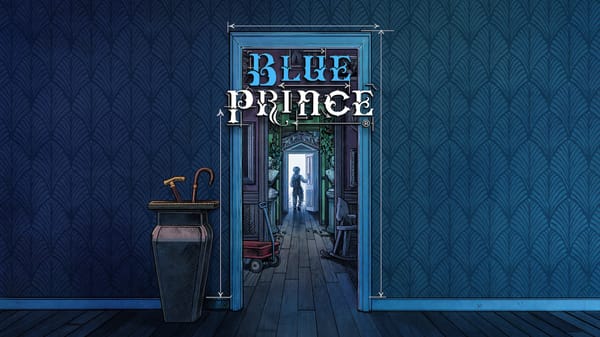Donkey Kong Country: Tropical Freeze and the backpack metaphor
Buckle up, folks: It's a fiction workshop metaphor week
I once had a writing professor offer up the following metaphor for how short stories work.
Picture the reader as a hiker with a backpack on. The reader is climbing a mountain, and the mountain is your story. As they climb, the reader finds things on the ground that they then put into their backpack, making the climb more difficult because they are carrying additional weight. With every new thing they pick up—backstory, plot thread, scenic detail—they get heavier. But the reader doesn’t mind. Or at least they won’t, if, when they get to the top of the mountain, everything you as the writer have asked them to put in their backpack has been essential to the story. If nothing is extraneous, it doesn’t matter how much they’ve piled on their backs. The journey has been worth it if everything coheres.
Reader, Donkey Kong Country: Tropical Freeze is the perfect backpack story.
I often play two games at a time: one that is fun for me to play, and one that is both fun for me to play and fun for my wife to watch. Tropical Freeze fell into the latter camp, as Persona 3 Portable is not a great game to watch (if it is a great game at all).1 Tropical Freeze by contrast is a delight in that traditional Nintendo/Retro Studios way. The animations are almost too charming to be believed. Very serious henchman penguins march their way toward you with full belief in their cause, only to have their eyes bug out of their heads when you stomp on them, all while gorgeous backdrops come alive with details that really only a passive observer can fully enjoy. The music is the kind of thing that gets covers on YouTube. And then there’s the level of comedy involved in watching your husband (me) get absolutely trounced by a game that, despite its cuteness and audiovisual pleasantry, can be an absolute wall of difficulty to surmount.
I’m more of a Mario guy than a Donkey Kong guy, so I have to admit that Tropical Freeze’s difficulty took me by surprise. I knew the games were difficult, but the sheer variety of ways that Retro Studios delighted in killing me was admirable. Mine cart levels, I knew to expect. Mine cart levels that become three-dimensional mid-level, adding depth perception to the list of skills you’re now expected to have when jumping over gaping chasms? That took me for a (joyous) surprise.
But it’s the way the game makes you literate in its patterns that I found most remarkable, and to illustrate the point, I’ll use an early boss fight against the perfectly named Skowl.
Skowl, like all the bosses in Tropical Freeze, is a masterclass in pattern escalation. Each phase of the fight teaches you how to approach the next, which increase in difficulty, complexity, and, in Skowl’s case, quite literally height, comically literalizing the idea of escalation. Phase one teaches you several things: to dodge his feather attacks, to use his minions against him, and that you need to get the right height to be able to hit him with said minions. This phase also features the most forgiving play area: a central platform, but also two buttressing sets of platforms where Donkey Kong can safely land. Phase two removes those buttressing platforms and leaves the player with only the central platform. This creates a problem for the player to solve: How does one get to the necessary height to hit Skowl now? Well, it involves jumping on his minions’ heads, which, go figure, you gained experience in during the levels preceding the boss fight. (You’ve already put this skill in your backpack!) So you jump on their heads. One, two, three, toss. Now, he starts shooting feathers at you again, only this time, there are no gaps in which to safely stand. You quickly surmise (or maybe surmise on your second attempt) that you cannot stay on the central platform this time, but must instead use the barrels that have replaced the buttressing platforms in order to not take damage. You skillfully repeat this process three times before Skowl takes you to the final and most heightened stage of the fight. Now in the sky, with a beautiful backdrop of pink clouds floating by, you must combine all that you’ve learned. You dodge a new pattern of feather attacks. You avoid a new set of minion deployments. You wait until he is just the right height to hit with the one minion who has an eggshell hat and not a spiky viking hat, and you do that three times, and you win.
What is so beautiful about Skowl and all the bosses in Tropical Freeze is that there is not a single wasted thing that he teaches you in any phase of his fight. Each skill you learn through repetition (i.e., dying) helps you to learn the next skill required of you in subsequent phases. Further, this meta-lesson helps you defeat later bosses, as you learn to anticipate the theme and variation mentality of their design. If the game is the mountain, and the player is the hiker, Tropical Freeze knows exactly how much to put in your backpack at any given moment, such that, by the time the credits roll, you will feel that there is not an ounce of fat on this game, and that every idea it had, it used to the fullest.
The lesson of the backpack/hiker metaphor in fiction workshops is that you want your reader to feel that their time and intelligence has been respected by the story. If you feel similarly playing Tropical Freeze, maybe it’s because it follows this exact method of craft, transposed to another genre.
Thank you for reading Backlog. This post is public so feel free to share it.
More on that thought soon. ↩




